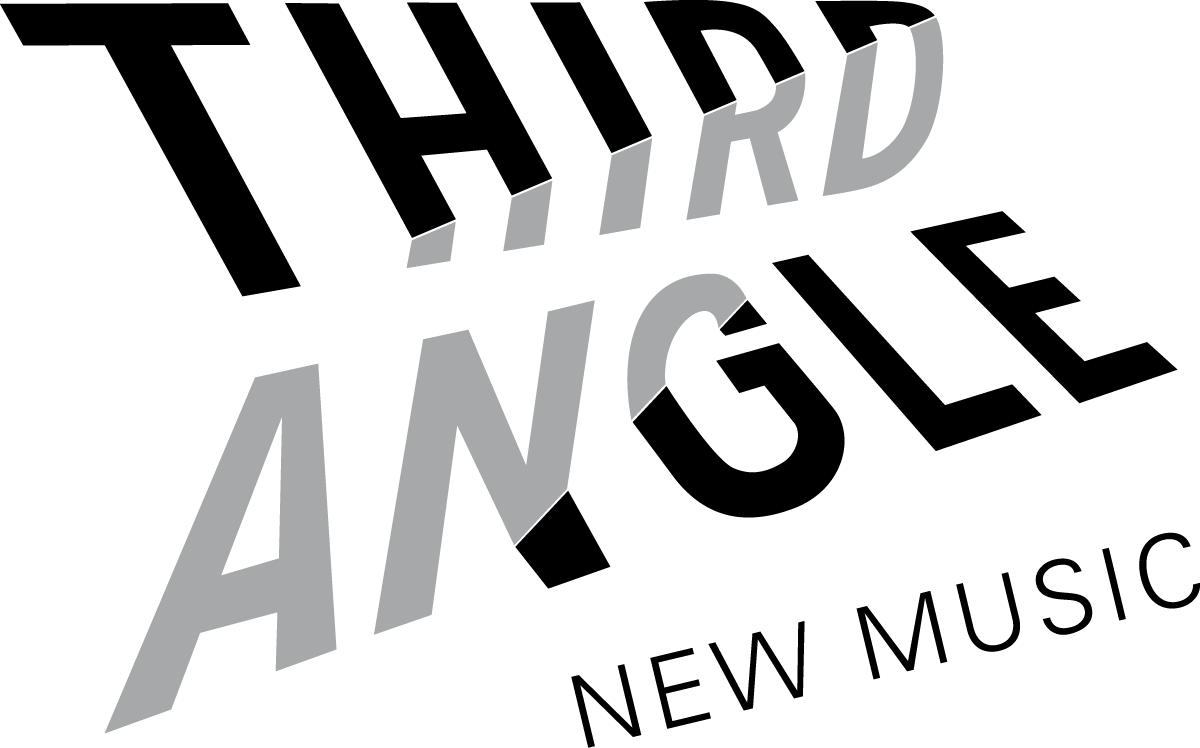Third Angle is committed to providing an environment that is free of discrimination. Actions, words, or comments based on an individual’s sex, race, ethnicity, age, religion, marital status, military status, disability, sexual orientation, political ideology, or any other legally protected characteristic are not tolerated.
In this spirit, we are in the process of deeply evaluating the inner workings of our organization—how our actions in hiring, staffing, programming, commissioning, and policy making will actively combat racism in the new music community, while uplifting and celebrating voices that have historically been silenced.
We are proud signatories of the New Music Equity Action (NMEA) Pledge, and we commit to the long-term responsibility of working actively against inequity, racism, and anti-Blackness in our field.
As laid out in the NMEA Pledge, we are crafting a comprehensive five-year cultural equity plan for our programming, commissioning, and artistic collaborations to fully reflect the diversity of the United States and its most diverse communities.
Transparency is imperative to us, and we will update this page with more information on other actions we are taking to build a more diverse and equitable organization and community, including a full audit of our past and current programming and artist rosters.
At Third Angle New Music, it is our objective that our organization, programming, and community reflect the true diversity and vitality of new music.
ACCESS 3A
a new initiative addressing the need for more accessible arts opportunities for adults experiencing disability.
At the start of the 22/23 Third Angle announced Access 3A: a new initiative addressing the need for more accessible arts opportunities for adults experiencing disability. This project is made possible with generous support from The Fred W. Fields Fund and Sir James and Lady McDonald Cultural Fund of Oregon Community Foundation. These funds are being invested in a new Access Coordinator position, interpretation professionals, and ticket subsidies that will reduce barriers to participation in 3A’s programming.
Access 3A responds to feedback from disability service providers and individuals about a lack of access or knowledge of art events in disability circles, as well as the lack of attendance by people with disabilities in previous seasons. Newly appointed Executive Director Carissa Burkett designed Access 3A in consultation with disability arts organization Elbow Room, and will continue to refine it in spring 2023 with a panel of 6 individuals with a range of access needs providing feedback and advice.
Currently, the pilot phase includes:
Outreach to disability organizations & communities to coordinate attendance to all six concerts
Integrating sound-reactive light technology into Yo-Yo Va, featuring rockstar cellist Valdine Ritchie Mishkin & music by a composer with hearing loss
Providing American Sign Language interpretation for concerts with spoken dialogue
Including audio description services for the visually impaired for two of the most elaborately staged concerts of the season: The Goddess & 1000 Airplanes on the Roof
Designing Self Portrait to address sensory/content triggers for audiences with sensitivities & integrating a group art project inspired by Yayoi Kusama’s polka dot paintings, which she describes as an expression of her own psychiatric challenges
Although new to Third Angle, Burkett has a long history of stewarding projects that provide opportunities for adults impacted by disability to engage with the arts. Prior to joining 3A, she had a three-year term as the Program Manager at Project Grow—an art studio, gallery, and urban farm that supported artists with intellectual and developmental disabilities. This work required attending case management meetings, interfacing with an extensive network of service providers, and facilitating support for a wide range of needs.
“Live performances undoubtedly enrich the lives of those who have access to them.” says Burkett. “We recognize that access is not equal, which is why we are actively working to reduce these barriers to Third Angle events. It is my hope that initiatives like Access 3A can become more commonplace in the arts in future years.”
Third Angle looks forward to implementing and adapting Access 3A based on the feedback we receive over the pilot season and plans to grow and develop the initiative over the future seasons. 3A is grateful to CONE PDX for their grant writing support on this initiative.



